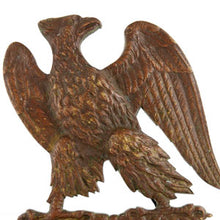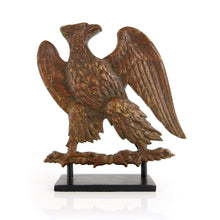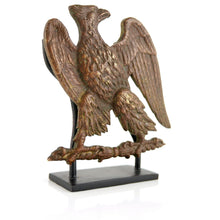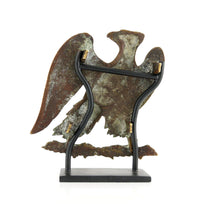Waterloo Relic - Old Guard Eagle Badge, Premier Empire, 1804
Adding product to your cart
Overall: 9.3 cm (3.6in) x 9.5cm (3.7in)
Cast bronze uncrowned French imperial eagle clutching Jupiter's spindle in its talons, as borne on the cartridge box or ‘giberne’ of a Grenadier-à-Pied de la Garde Impériale.
The Grenadiers-à-Pied de la Garde, or the Old Guard, was created at Napoleon’s coronation decree of 29 July 1804. There were four regiments of Old Guard infantry: 1st and 2nd each of grenadiers and chasseurs. Made up of experienced campaigners above average height, the Old Guard established a fearsome reputation. Disbanded in 1814 after an emotional farewell to the Emperor at Fontainbleau, The Old Guard was reformed on Napoleon's 1815 return from exile. At Waterloo the 2e Regiment de Grenadiers-à-Pied was pivotal in the defence of the village of Plancenoit against the Prussians. The 1er Regiment, charged with protecting the field position around Napoleon himself, served as a rear guard after the failure of the attack of the Middle Guard on the Allied centre.
The eagle badge is loaded with Napoleonic symbolism drawn from ancient Rome. Jupiter, god of the sky and thunder, was the chief deity of Roman state religion. The eagle was the symbol of Jupiter’s authority, and as such would be set free during the consecration of an emperor in a ritual that culminated in the emperor's apotheosis. By flying into the air, the eagle was believed to carry the soul of the deified emperor to heaven, thus securing him a place among the gods.








